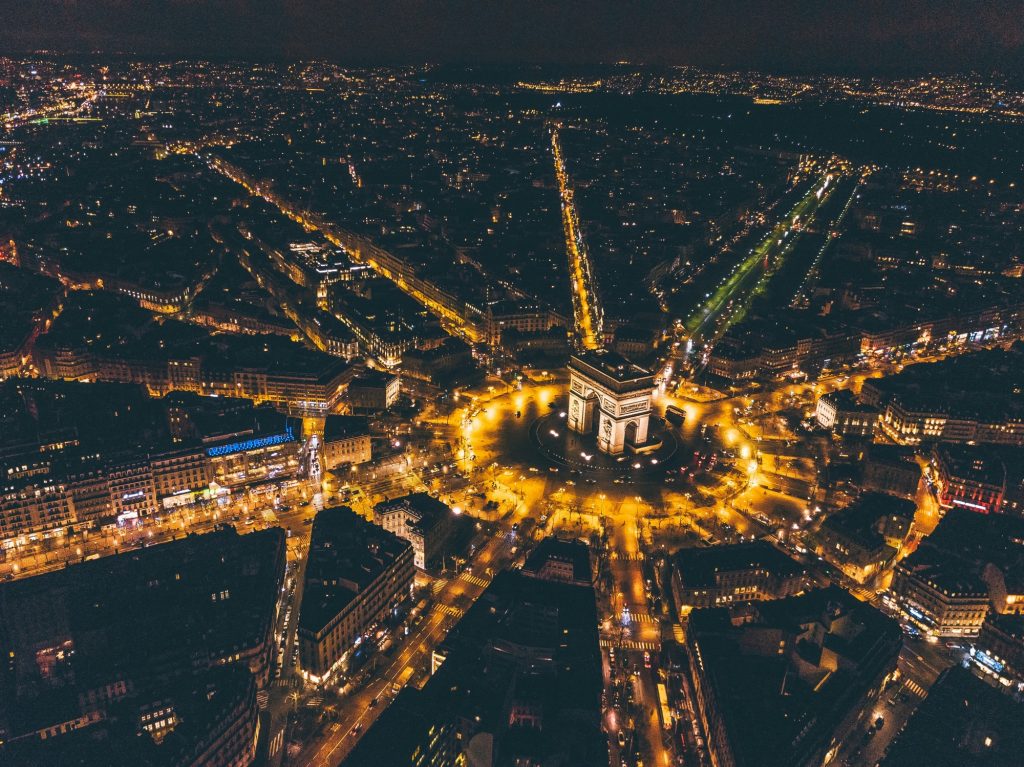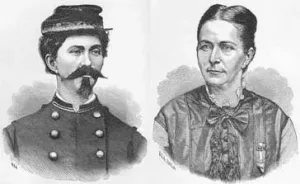Why is Paris known as The City of Light?

Paris, the capital of France, is renowned for its stunning architecture, artistic treasures, and romantic ambiance. However, few know that this enchanting city has another moniker – the City of Light. This nickname is rooted in Paris’ rich history, which has been shaped by its role as a hub for education, intellectual pursuits, and technological advancements. In this article, we will delve into the fascinating story behind Paris’ nickname and explore the events that have made it synonymous with enlightenment and progress.
The Age of Enlightenment
During the 17th and 18th centuries, Paris emerged as the epicenter of the Enlightenment, a movement that revolutionized Western philosophy and culture. The city became a magnet for brilliant minds, including Voltaire, Diderot, Montesquieu, and Rousseau, who converged to share ideas and challenge conventional wisdom. The Enlightenment’s emphasis on reason, science, and individual liberty resonated with the French people, fostering a spirit of intellectual curiosity and critical thinking.
Key Philosophers and Their Influence
- Voltaire: Known for his wit and advocacy for civil liberties, his works critiqued the church and state, inspiring reforms.
- Diderot: As the chief editor of the Encyclopédie, he aimed to compile and disseminate knowledge, making it accessible to a broader audience.
- Montesquieu: His ideas on the separation of powers influenced constitutional frameworks worldwide, including the U.S. Constitution.
Paris as a Center of Learning
Paris’ reputation as a center of learning and intellectual pursuits earned it the nickname “City of Light,” symbolizing the illumination of knowledge and understanding. The salons of Paris, hosted by influential women like Madame Geoffrin, became places where intellectuals gathered to discuss new ideas. These salons played a significant role in spreading Enlightenment thought.
Salons: The Intellectual Hubs
Salons were vibrant centers of intellectual exchange, where thinkers and artists debated ideas. These gatherings were often hosted by women of influence, who played crucial roles in shaping the discourse of the time. For instance, Madame de Staël, a prominent salonnière, was known for her literary influence and her support of liberal ideas. Her salons were attended by thinkers and writers who would later shape Europe’s intellectual landscape.
Street Lighting
In 1667, King Louis XIV appointed Gabriel Nicolas de la Reynie as Lieutenant General of Police, who implemented a groundbreaking initiative – street lighting. By 1668, nearly 3,000 candle-lit lanterns were installed throughout the city, making Paris one of the first well-lit cities in Europe. This innovation not only improved safety but also transformed the urban landscape, creating a sense of community and fostering social gatherings.
Evolution of Public Lighting
- Gas Lighting: Introduced in the 19th century, it replaced candlelights, providing brighter and more reliable illumination.
- Electric Lighting: By the late 19th century, electric lighting began to dominate, further enhancing the city’s nighttime beauty.
- Modern Installations: Today, iconic structures like the Eiffel Tower are adorned with twinkling lights, and events like Nuit Blanche celebrate light art installations across the city.
The commitment to public lighting has continued to evolve, cementing Paris’ reputation as a beacon of progress.
Impact on Social Life
The introduction of street lighting had a profound impact on Parisian social life. It allowed for safer nocturnal activities, encouraging Parisians to enjoy the city’s vibrant nightlife. Cafés, theaters, and other social venues flourished, contributing to the city’s reputation as a cultural hub. The illuminated streets also became a symbol of modernity and progress, attracting visitors from across Europe.
Technological Advancements and Modernization
Paris has consistently embraced technological innovations, from the Industrial Revolution to the digital age. The city’s manufacturing sector, particularly in steel and textiles, drove growth and modernization in the 19th century.
Industrial Revolution in Paris
The Industrial Revolution brought about a transformation in Paris as factories and railways expanded. The city became a center for engineering and manufacturing, attracting workers and entrepreneurs. The construction of rail networks facilitated the movement of goods and people, further integrating Paris into the industrial economy.
The Introduction of Cinema, Radio, and Television
- Cinema: The Lumière brothers, pioneers of early cinema, held one of the first public film screenings in Paris in 1895, marking the city as a birthplace of film.
- Radio and Television: As these technologies developed, Paris became a hub for broadcasting, with Radio France and major television networks establishing their bases in the city.
The Impact of Technological Progress
Technological advancements not only bolstered Paris’s economy but also cemented its status as a leader in innovation. The establishment of the Paris Métro in 1900, for example, revolutionized urban transportation, making it easier for residents and visitors to navigate the city. The development of new technologies in communication and transportation highlighted Paris’s commitment to modernization and progress.
Cultural and Artistic Movements
Paris has been the birthplace and inspiration for numerous artistic and intellectual movements, influencing the development of art, literature, and culture worldwide. From the Impressionists to the Cubists, the city’s museums, galleries, and salons have nurtured some of the most influential artists in history.
Impressionism and Beyond
- Impressionism: Artists like Monet, Renoir, and Degas broke traditional painting conventions with their focus on light and color, capturing everyday life.
- Cubism: Pioneered by Picasso and Braque, this movement challenged perceptions of form and space, revolutionizing artistic expression.
The Belle Époque
The Belle Époque, a period of cultural and artistic flourishing, saw the rise of iconic cabarets, theaters, and literary circles. This era was characterized by optimism and innovation in the arts, with figures like Toulouse-Lautrec capturing the vibrant nightlife of Montmartre.
The Role of Montmartre and Montparnasse
Montmartre and Montparnasse were epicenters of artistic innovation. Montmartre, with its bohemian atmosphere, attracted artists seeking inspiration from the vibrant street life and picturesque views. Montparnasse, on the other hand, became a hub for expatriate artists and writers, including Hemingway and Fitzgerald, who drew inspiration from the city’s dynamic cultural landscape.
Paris as a Beacon of Progress
Paris’ nickname, the City of Light, is a testament to its enduring legacy as a beacon of knowledge, innovation, and progress. From the Enlightenment to modern-day technological advancements, the city has consistently pushed boundaries and challenged conventional wisdom.
Modern-Day Innovations
Today, Paris continues to lead in fields like fashion, design, and green technology. Initiatives like the Paris Agreement highlight the city’s commitment to sustainability and its role in addressing global challenges.
The Role of Education and Research
Institutions like the Sorbonne and CNRS (National Centre for Scientific Research) underscore Paris’ ongoing dedication to education and research. These institutions attract scholars and scientists worldwide, contributing to the city’s reputation as a center of intellectual and technological advancement.
Environmental Initiatives
Paris has also taken significant strides in environmental sustainability. The city’s investment in green spaces, such as the development of urban parks and the promotion of cycling, reflects its commitment to a sustainable future. The annual Paris Marathon and initiatives like Vélib’, a public bike-sharing system, encourage eco-friendly transportation.
Practical Tips for Exploring the City of Light
For those visiting Paris, experiencing its legacy as the City of Light can be incredibly rewarding. Here are some practical tips to make the most of your visit:
- Explore by Night: Take evening walks along the Seine to see landmarks like Notre-Dame and the Louvre beautifully illuminated.
- Visit Museums: Don’t miss the Musée d’Orsay and the Louvre to appreciate masterpieces that have shaped art history.
- Attend a Salon or Lecture: Many cultural institutions host talks and events that continue the tradition of intellectual exchange.
- Experience Modern Paris: Explore neighborhoods like Le Marais and La Défense to see contemporary architecture and design.
Additional Tips for an Enriching Experience
- Café Culture: Spend time in traditional Parisian cafés, where you can soak up the local atmosphere and perhaps engage in a philosophical discussion with fellow patrons.
- Artistic Pilgrimage: Visit Montmartre to see the remnants of its bohemian past and Montparnasse to explore its rich artistic heritage.
- Literary Tours: Follow in the footsteps of literary giants with a tour of the city’s iconic bookstores and cafes frequented by writers like Ernest Hemingway.
As we stroll through the charming streets of Montmartre, admire the Eiffel Tower’s grandeur, or visit the Louvre’s majestic halls, we are reminded of the City of Light’s timeless allure – a fusion of history, culture, and innovation that continues to inspire and captivate us all. Through its commitment to intellectual and artistic endeavors, Paris remains a city that not only embodies the spirit of enlightenment but also serves as a beacon of progress and modernity in the ever-evolving landscape of global cities.



